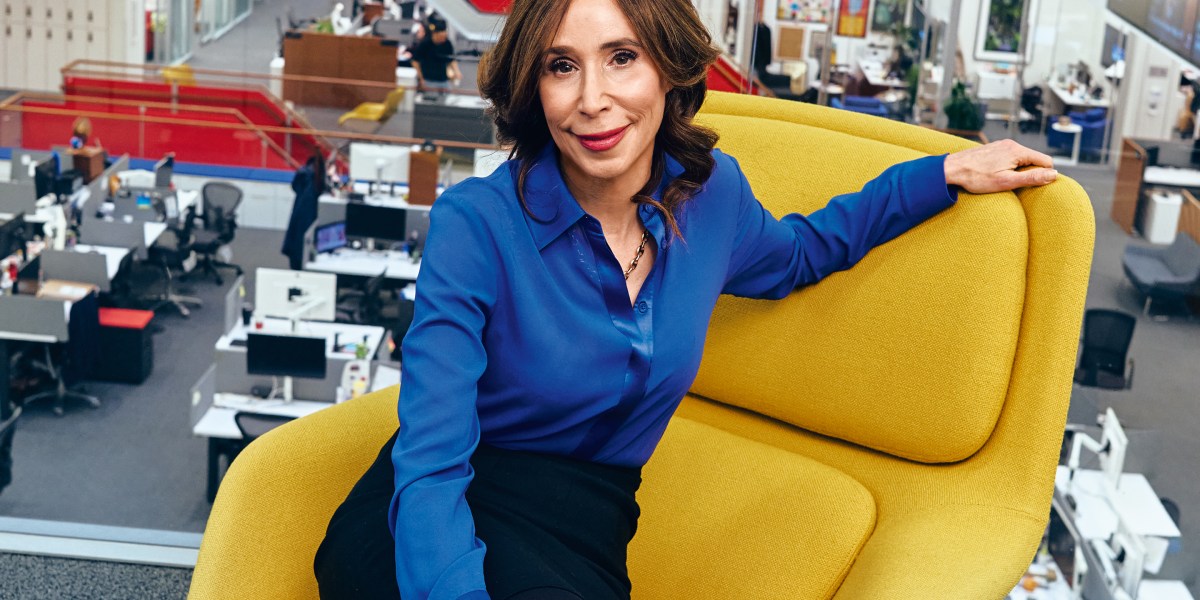From My Inbox: Delayed Confidence
You know you're qualified. Your track record proves it. So why does that voice in your head still whisper 'maybe not this time'?

One of my favorite books is Katharine Graham’s memoir “Personal History”.
For those who aren't familiar with Katharine Graham, Graham was the legendary publisher of The Washington Post. She presided over the paper as it dug deeper into a break-in which grew into a scandal - a scandal that ultimately took down the president of the United States. And all the while as she was defying the government by publishing both the Pentagon Papers and the Watergate story, she was suffering from a massive lack of confidence.
As she shares in her Pulitzer Prize-winning memoir: "What most got in the way of my doing the kind of job I wanted to do was my insecurity"
To cut her some slack, Graham was raised to be the perfect society housewife, not a CEO (BTW she was the first CEO of a Fortune 500 company). But destiny interrupted that life plan of hers, and out of necessity, Graham stepped in to take control the media company (yes, the media company was owned by her family but back to "she was raised to be the perfect society housewife" - in other words, she was not handed the role).
Why does this matter?
Because having big career dreams and being fully prepared doesn’t ensure we arrive fully-baked with confidence either.
A more recent case in point: Meredith Kopit Levien, CEO of The New York Times
By Kopit Levien’s own admission it took her a year or two “just to have any confidence that I could do the job. And that I could maybe even do it well”.
What’s interesting is that Kopit Levien wasn’t tossed in the role of CEO lacking experience (like Graham) – she’d already served as the NYT's chief revenue officer and COO. She knew the business inside and out. Yet confidence in her ability to excel at the top job took a couple more years to develop.
This phenomenon (not limited to women leading prestigious publishing companies in case you’re wondering) —competence arriving well before confidence—is what I call delayed confidence.
The Confidence Gap
In April 2014, journalists Katty Kay and Claire Shipman published "The Confidence Gap" in The Atlantic. Their article fundamentally shifted how we understand women's relationship with confidence: success it seems, correlates just as closely with confidence as it does with competence. For example, unless we (women) are pretty sure we meet 100% of the qualifications on a job listing, we hesitate to apply. We edit ourselves out. As for men, they’ll eagerly apply if they meet 60% of the requirement for a job. We’re judged on past performance. They’re judged on future potential. These realities are a persistent influence on our confidence.
Kay and Shipman's own stories embody women’s complex relationship with confidence.
Katty, despite covering wars, speaking multiple languages, and graduating from Oxford, remained convinced that her success in journalism was due to her English accent—surely giving her "a few extra IQ points every time she opened her mouth." Claire habitually told people she was "just lucky" when asked how she became a CNN correspondent in Moscow in her twenties.
As they began interviewing other successful women, they consistently found (behind the oodles of evidence of high achievement and praise-worthy accomplishment) a confidence shortage rather than flourishing female confidence.
Sometimes It Really Is All In Your Mind
Delayed confidence has neurological underpinnings.
The amygdala plays a central role in encoding emotional memories, particularly negative ones. And it seems the left amygdalae in women activates more easily in response to negative emotional stimuli…suggesting that women are more likely to form strong emotional memories of negative events. The sort of confidence zapping memories which may cause us to doubt our capabilities. Meanwhile, testosterone helps fuel what often looks like classic male confidence. It’s not that testosterone necessarily equals confidence — it's that it can facilitate behaviors we socially interpret as confident (such as increased willingness to compete and take strategic risks and so on).
But wait, there's more illuminating research.
In a study conducted by psychologist Zachary Estes (involving 545 students performing spatial reasoning tasks), when Estes forced participation – that is, when all of the participants were required to attempt every question rather than self-selecting out - women’s scores increased sharply, matching the men's.
And in a field experiment led by Wharton PhD candidate Sophia Pink, women’s willingness to apply for senior executive roles jumped 29% when they received a simple message: you’re missing out (by not applying). Perhaps there is an upside to FOMO after all?
It’s A Global Reality
The delayed confidence phenomenon isn't uniquely North American. An eight-year study analyzed data from over 985,000 men and women across 48 countries. The results were universal: men consistently rated themselves higher than women in self-esteem, regardless of culture. Even more paradoxically, the confidence gap was wider in egalitarian Western societies where women had more opportunities.
Here's the theory behind this paradoxical irony: in egalitarian societies, women compare themselves directly to those in positions of power (especially men). Seems when you're competing on a supposedly level playing field but are mostly still seeing those who have more resources or privilege or a different personality or leadership style or gender bits dominate the top ranks, the comparison we make in our heads about our own capabilities becomes even less favorable.
Yes, yet another example of why we “need to get out of our own heads”.
Create A Confidence Boosting Network
Confidence is not just feeling good about yourself – it’s is the stuff that turns thoughts into action. And you’ve likely already caught on to the catch-22: in taking action, we become more confident, yet a tinge of lack in our confidence causes us to hesitate.
This is where your network comes in.
Delayed confidence requires a specific kind of support system—yes, the right network—designed for growth, not optics—changes everything! It requires an inner circle of like-minded, gritty women (see my previous posts if you’ve confused on what I’m talking about here). An inner circle aren't cheerleaders offering empty “just do it” encouragement. In the instances of delayed confidence, they are women who:
- Hold space for the confidence wobble.
- Lay out the evidence - especially in those moments when we’re blind to our own brilliance and competence.
- Understand that confidence emerges (as leadership expert Selena Rezvani, author of "Quick Confidence" notes) through "moment-to-moment practice”.
Take a look at who surrounds your ambitions.
Your inner circle should include women who:
🗝️· Have been there and done that - so they can provide reality checks on actual vs. perceived risks.
🗝️· Will pull out the receipts – that is, all the smaller proof points that you are fully equipped to tackle that next challenge, regardless of what the damn voice in your head is telling you.
🗝️· Create opportunities for you to gain confidence in practice – such as taking on lower stake leadership roles on committees or not-for-profit boards, or speaking on panels.
🗝️· Normalize the evolution of your confidence. They should confidently be able to say "I felt exactly like that before I got promoted, and here’s how I navigated my hesitations or doubts or whatever…". Think practical, actionable wisdom versus trite "believe in yourself" BS.
🗝️· Keep you in the game. Go back to Estes research referred to above: when women were required to participate, rather than self-selecting out, there were no differences in outcomes- the women performed as well as the men.
Does your inner circle hold up?
The aim isn’t to eradicate delayed confidence—but to have a networks that understands how real confidence frequently develops, that is, through experience, practice, repetition and stories. When your inner circle knows that the most unshakeable confidence is the kind that's been tested and proven, they are a bridge between your competence and your belief in it. This isn’t about inflating your ego—it’s having a network to show you the confidence you've already earned.
(If you don't know who is in or out of your network, then immediately download Chapter 2 of my next book, The Social Billionaire to figure this out!)
Need more?
💡 The Confidence Gap: Evidence shows that women are less self-assured than men—and that to succeed, confidence matters as much as competence. Here's why, and what to do about it. (The Atlantic)
💡 Want More Women in Leadership? Tell Them They’re Losing Out (Knowledge at Wharton)
💡 It’s Not You, It’s Science: How Perfectionism Holds Women Back (Time)
💡 For Women To Rise We Must Close 'The Confidence Gap' (Forbes)


